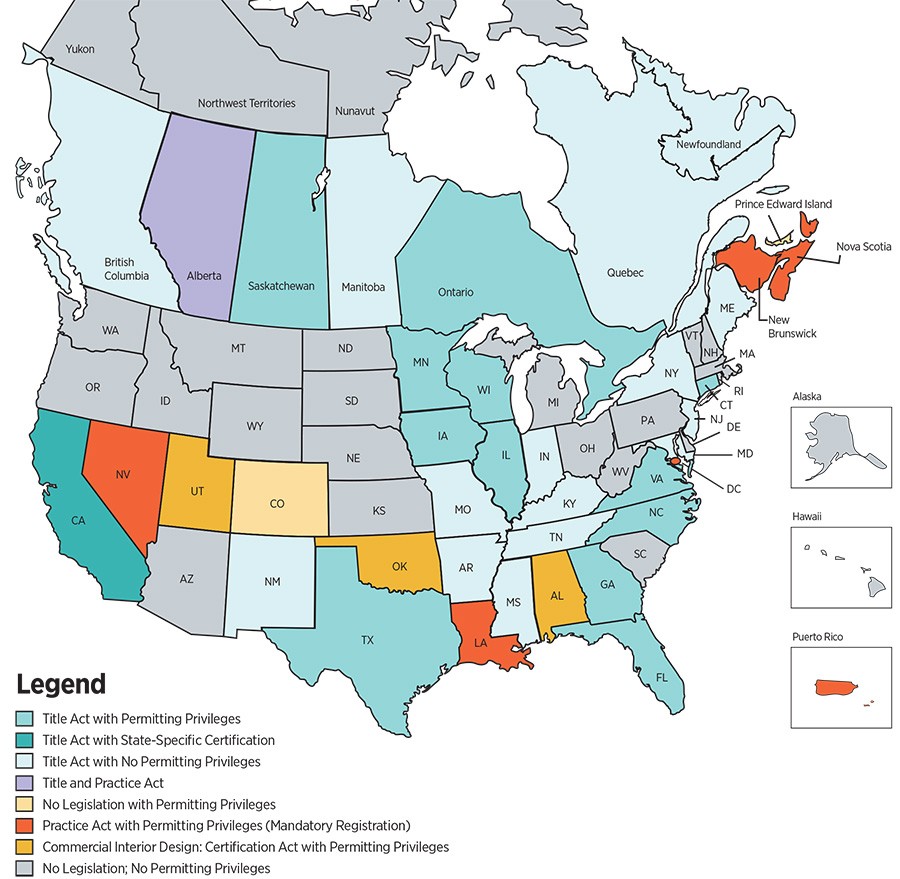Map courtesy of IIDA
By Granting Licensure to Interior Designers, Massachusetts Can Finally Live Up to Its Progressive Ideals
Six years ago, I was interviewed on a topic close to my heart: professional licensure for interior designers. I was frustrated that the state of Massachusetts would not allow interior designers to obtain a form of regulatory licensure, unlike the majority of states and provinces in the US and Canada.
Today, and several legislative defeats later, we are in exactly the same position. We have 21 interior designers at SMMA, and none of us can attain licensure in Massachusetts. This places several unfair restrictions on our profession. Without a license, we cannot stamp and submit drawings for building permits. We cannot sign AIA contracts. And aside from furniture selection, we cannot bid on public work. Our career options are limited for as long as all paths to licensure are limited.
A new bill, S.2408, is currently working its way through Beacon Hill. In substance it is much the same as the very first bill introduced in 2009. It simply asks that interior designers be recognized as registered professionals—a status our architecture and engineering colleagues have enjoyed since time immemorial.

